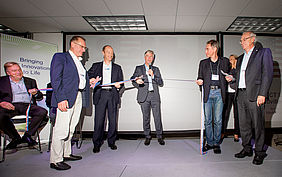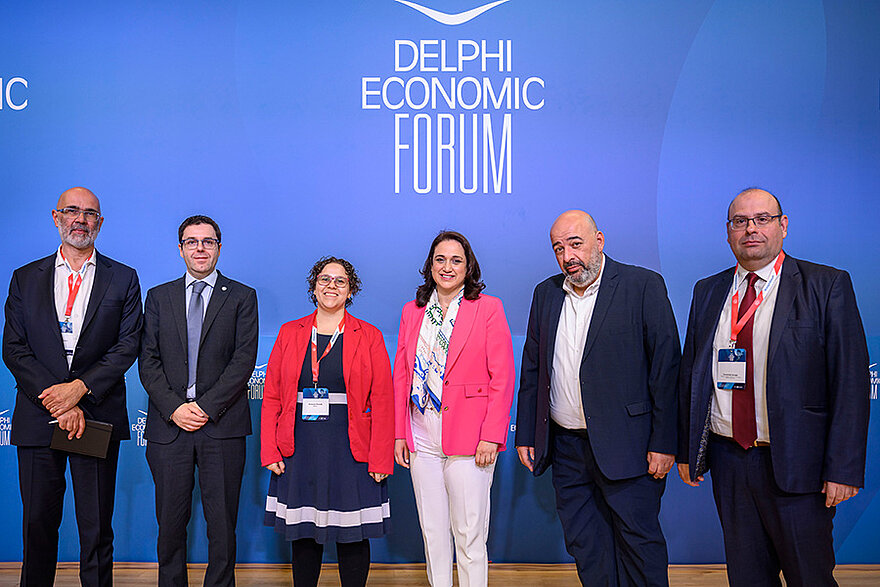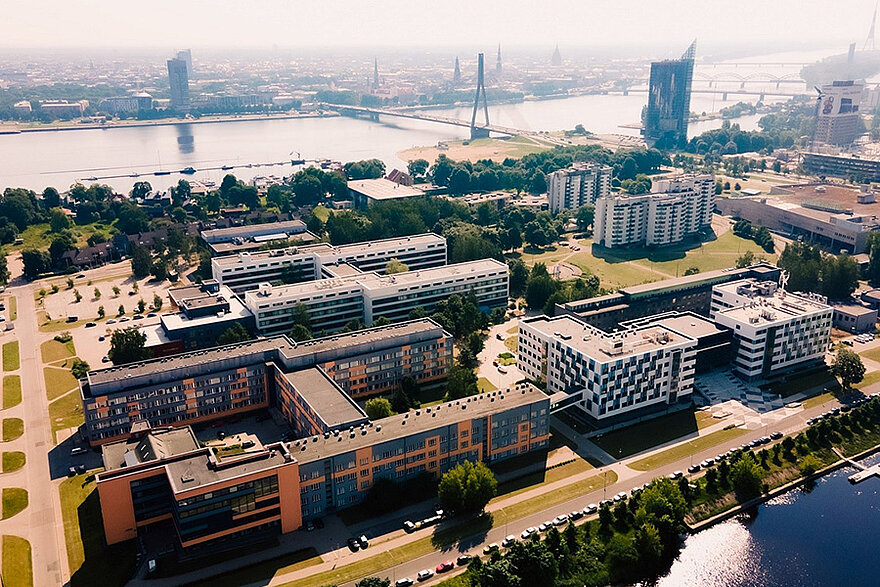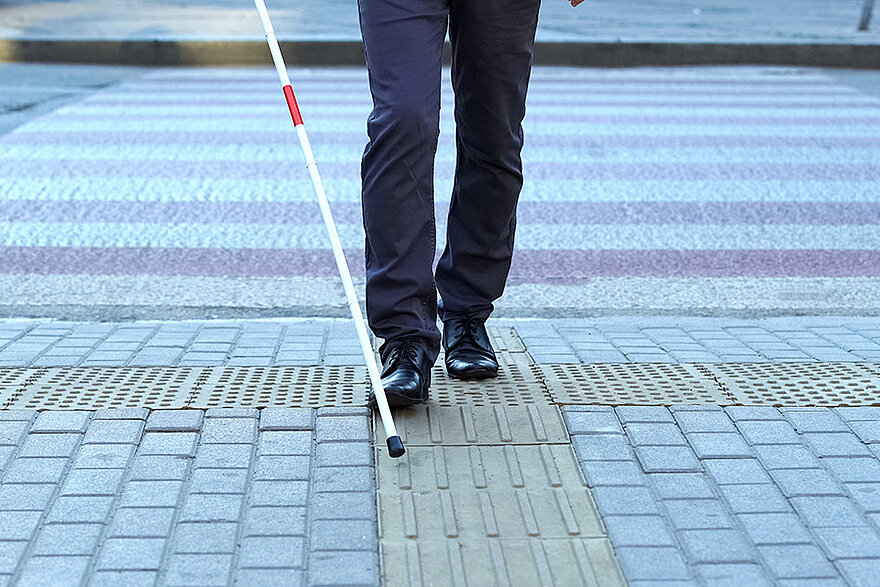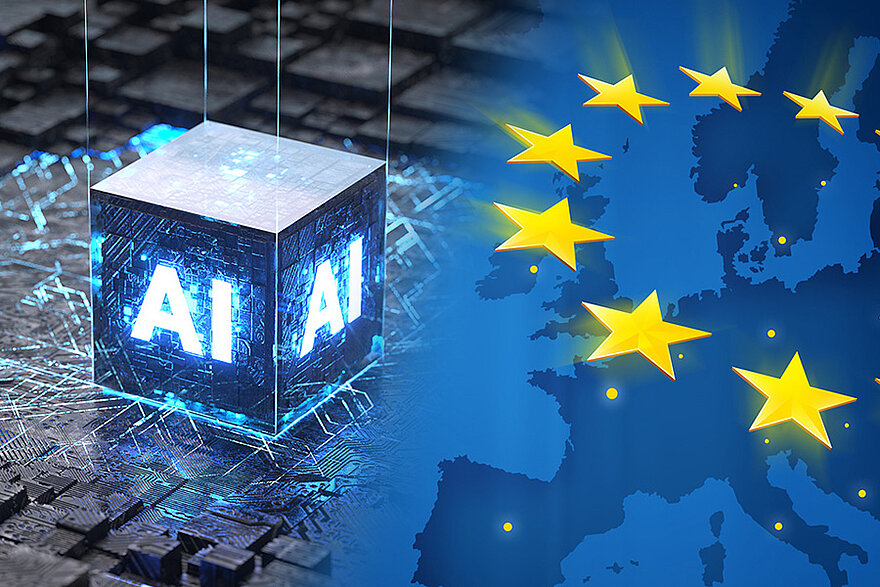Over 120 participants including great startups had gathered for the EIT ICT Labs Grand Opening of its new hub in Silicon Valley.
The day contained presentations, interactive workshops, official opening and much appreciated pitches by 12 European startups in the field of Health & Wellbeing.
"I really enjoyed our opening event with a very strong program and very high show-up of audience both in terms of numbers and seniority. The message to connect in a more uniform way from Europe to the Bay Area was well received and reinforced by the words from the Italian Consul General Mauro Battocchi. All in all an excellent start where we did set the expectations right and high; we are all set-up now to make the hub a real bridge between the Bay Area and our EU ecosystem”, said Willem Jonker CEO EIT ICT Labs.
 The first Keynote: "Hiding in Plain Sight - Massive Trends Missed by the Masses”, was given by Dr. Joon Yun, a renowned investor and Managing Partner and President of Palo Alto Investors, LLC, a hedge fund founded in 1989 with over $1 billion in assets under management. The audience was captured by his talk on e.g. ageing and the ability to remain stable or remaining the same. "When we are young for instance we can rebound from a bad night’s sleep quickly, when we are old, it can take days to recover. When we are young, our eyes adjust to changing focal length, when we are old, the focus never quite rebalances. The original “health system” is our inborn, adaptive homeostatic capacity, endowed by nature and shaped by evolution. Once humans reach reproductive senescence by their mid 40s, however, a progressive erosion of innate homeostatic capacity begins, manifesting in the panoply of aging diseases. Our proposal for 21st century healthcare is a paradigmatic revolution—restoring homeostatic capacity instead of restoring homeostasis—as a way to end aging. If we can put homeostatic capacity, and thus health, back in the body, healthcare costs could contract dramatically. The feed-forward relationship between health innovation and increasing future consumption—a vicious cycle that threatens aging economies everywhere including Europe and the United States—would finally be decoupled. Median lifespan could telescope to a number of years that might have once seemed unimaginable. Human capacity would finally be fully unleashed", explained Joon Yan.
The first Keynote: "Hiding in Plain Sight - Massive Trends Missed by the Masses”, was given by Dr. Joon Yun, a renowned investor and Managing Partner and President of Palo Alto Investors, LLC, a hedge fund founded in 1989 with over $1 billion in assets under management. The audience was captured by his talk on e.g. ageing and the ability to remain stable or remaining the same. "When we are young for instance we can rebound from a bad night’s sleep quickly, when we are old, it can take days to recover. When we are young, our eyes adjust to changing focal length, when we are old, the focus never quite rebalances. The original “health system” is our inborn, adaptive homeostatic capacity, endowed by nature and shaped by evolution. Once humans reach reproductive senescence by their mid 40s, however, a progressive erosion of innate homeostatic capacity begins, manifesting in the panoply of aging diseases. Our proposal for 21st century healthcare is a paradigmatic revolution—restoring homeostatic capacity instead of restoring homeostasis—as a way to end aging. If we can put homeostatic capacity, and thus health, back in the body, healthcare costs could contract dramatically. The feed-forward relationship between health innovation and increasing future consumption—a vicious cycle that threatens aging economies everywhere including Europe and the United States—would finally be decoupled. Median lifespan could telescope to a number of years that might have once seemed unimaginable. Human capacity would finally be fully unleashed", explained Joon Yan.
EIT ICT Labs interactive workshops
 The EIT ICT Labs interactive workshops were designed to stretch participants' thinking in the particular topic areas and to build a network of people interested in pursuing these ideas together. Workshops were carefully moderated and facilitated by Lisa Friedman, Co-founder, Enterprise Development Group EDG and Co-author of The Dynamic Enterprise and Herman Gyr, Founding Partner, Enterprise Development Group EDG
The EIT ICT Labs interactive workshops were designed to stretch participants' thinking in the particular topic areas and to build a network of people interested in pursuing these ideas together. Workshops were carefully moderated and facilitated by Lisa Friedman, Co-founder, Enterprise Development Group EDG and Co-author of The Dynamic Enterprise and Herman Gyr, Founding Partner, Enterprise Development Group EDG
Four workshops were carried out:
- Future of Urban Life
- Future of Education
- Software Defined Networks
- Bridge for Entrepreneurship Between Silicon Valley and EU
Each workshop started with short lightning talks from several "provocateurs," whose role was to present one or two compelling examples of emerging trends and signals of the future in the specific topic area. Participants then worked in small groups to explore the opportunities in more detail. After each team brought their thinking back to the others, the group as a whole identified the highest impact ideas and next steps to move forward.
This very short process of "exploration" - "idea development" - "value optimization" - and "rapid implementation planning" created the kind of collective intelligence and enthusiasm that makes Silicon Valley what it is: a place where people rapidly engage and bring their best thinking to expand what's possible. The result was a series of very lively sessions that left everyone energized.
One of the most transformational trends in the networking industry, Software Defined Networks, (SDN) sparked a wide ranging and provocative discussion. Representatives from the network equipment manufacturing industry, telecommunications operators, and business users debated the benefits and challenges of adopting this new architectural approach.
SDN seeks to separate the software that controls network equipment from the hardware itself allowing software developers to write code that can manage and control any network equipment, regardless of manufacturer. This will enable the development of more flexible networks that can integrate disparate network equipment and enable faster and more flexible network configuration.
This new way of operating networks is not easy however. SDN is still in its infancy, requiring significant developments in both hardware and software, as well as major changes in operational procedures for the communications service providers.
Allowing independent software to control the underlying network, while the original intent of SDN, is only half the story. The breakout group discussed more sophisticated and far reaching implications of SDN. Several members of the group described the true power of SDN as its ability to connect business applications to the underlying network. This needs to be a two-way connection:
- Allowing the network to report critical data about activities and events happening at the network level up to the business applications. For example, traffic volume, or security alerts from motion cameras
- Enable the business applications to control the network, instructing it to establish network services as needed by the business
The promise of this bi-directional interaction, enabled by programmable APIs, will enable telecommunications operators to establish services more quickly and efficiently while also allowing the provision of a new range of services. According to Rick Hutley, VP Global Innovations Practice at Cisco and one of the provocateurs in the workshop, these new services will enable business applications to determine their network support needs based on real world data insight provided by their network.
They will then be able to direct the network to provide the services required to meet their business needs without the need for human intervention. The discussion explored longer term implications of SDN where the line between the network, data center processors, storage etc. no longer exists. Rick Hutley pointed out that while business applications can benefit from being able to control the underlying network to meet their needs, the long term goal will be to enable these applications to control the whole technology infrastructure. SDN is merely the current step on a much larger journey towards what Rick called a "Software Defined Environment" - enabling a dynamic ICT infrastructure that will be directly controlled by business applications.
"Software Defined Networks, along with Network Function Virtualization is bridging the telecom industry paradigm with the computer industry paradigm and is bound to steer the network evolution, hand in hand with the 5G by the end of this decade. The workshop took this for granted and discussed how a transatlantic cooperation can both accelerate and leverage on this evolution. Education, new ways of designing and operating networks, applied research; simulation and interoperability tested on distributed EU and US test bed, and innovation through startups are concrete steps that will be supported by the opening of the San Francisco Hub. A first plan is now available and it will be refined in the next two months to be executed early next year”, explained Roberto Saracco, workshop chair of SDN and Director EIT ICT Labs Italy.
“Our Urban Life and Mobility workshop focused on engaging citizens to make our cities smarter and developing sustainable mobility services. It was seen that EIT ICT labs can plan a significant role in improving social cohesion across cities and propagating the best solutions across USA and Europe. The role of open data and harmonized APIs was emphasized to enable a wide ecosystem of service developers. As a result, the planned collaboration programme will concentrate on air quality monitoring, participatory budgeting and mobility-as-a-service innovations. In the starting phase we will connect three cities: San Francisco, Paris and Helsinki”, commented Marko Turpeinen, Node Director EIT ICT Labs Helsinki and chair of the workshop.
"Discussion went on the possibilities of online education to personalised and individual learning - a learning that everyone will need in a fast moving society and labour market. Several questions were raised”, said Anders Flodström, Education Director EIT ICT Labs. What are the possibilities to reach out to many? What chance to provide better pedagogy and quality that does online learning provide?
The workshop on Bridge for Entrepreneurship between Silicon Valley and EU generated big interest. "ICT ecosystems are often compared against Silicon Valley, or the San Francisco Bay Area, and for a good reason. It continues to be the premier hotspot with highly innovative ICT companies, fast-moving and strong entrepreneurial culture, world-class universities, and a very rich set of financing tools and investors looking for "the next big venture”, says Klaus Beetz, Business Director EIT ICT Labs.
Hub officially opened
 In his official opening speech Willem Jonker EIT ICT Labs CEO, were joined by EIT ICT Labs Directors Anders Flodström, Klaus Beetz, Marko Turpeinen, and Roberto Saracco explaining EIT ICT Labs Programs and Activities in Silicon Valley.
In his official opening speech Willem Jonker EIT ICT Labs CEO, were joined by EIT ICT Labs Directors Anders Flodström, Klaus Beetz, Marko Turpeinen, and Roberto Saracco explaining EIT ICT Labs Programs and Activities in Silicon Valley.
After the traditional ribbon-cutting ceremony Mauro Battocchi, Consul General of Italy, EU Chairmanship encouraged the audience to support EIT ICT Labs in its effort to build a bridge between Europe and the US.
Europe must soften its attitude to failure
 Duncan Logan, Founder and CEO of RocketSpace, pointed out in his talk that Europe must soften its attitude to failure. Nothing exceptional comes from playing it safe. Furthermore Europe needs to be patient for real accelerated growth of its tech ecosystem. We need cycles of success where staff of one great company success divides to start the next generation of success. Hulu, Quora, Twilio and Zeitgeist are all former employees of Amazon.com. Also, Europe needs to look for specialization to build mindshare before it gets market share. Logan wrapped up his presentation with some questions. Where is the best place in the world to build a drone company - Stockholm? Where is the best place in the world to build a gaming company - Berlin? Where is the best place in the world to build a Fintech Company - London? Where is the best place in the world to build a wearable company - Paris?
Duncan Logan, Founder and CEO of RocketSpace, pointed out in his talk that Europe must soften its attitude to failure. Nothing exceptional comes from playing it safe. Furthermore Europe needs to be patient for real accelerated growth of its tech ecosystem. We need cycles of success where staff of one great company success divides to start the next generation of success. Hulu, Quora, Twilio and Zeitgeist are all former employees of Amazon.com. Also, Europe needs to look for specialization to build mindshare before it gets market share. Logan wrapped up his presentation with some questions. Where is the best place in the world to build a drone company - Stockholm? Where is the best place in the world to build a gaming company - Berlin? Where is the best place in the world to build a Fintech Company - London? Where is the best place in the world to build a wearable company - Paris?
European Opportunity in the Bay Area
 A the panel discussion Erik Ekudden, VP Global Technology Strategy at Ericsson, Carrie Walsh, Managing Director, Entrepreneur Services Group, Silicon Valley Bank, Bernd Girod, Professor EE, Senior Ass. Dean, Online Learning and Professional Development, Stanford University, and Paul Campbell, EIT ICT Labs Silicon Valley Advisor discussed the European Opportunity in the Bay Area.
A the panel discussion Erik Ekudden, VP Global Technology Strategy at Ericsson, Carrie Walsh, Managing Director, Entrepreneur Services Group, Silicon Valley Bank, Bernd Girod, Professor EE, Senior Ass. Dean, Online Learning and Professional Development, Stanford University, and Paul Campbell, EIT ICT Labs Silicon Valley Advisor discussed the European Opportunity in the Bay Area.
David Nordfors, EIT ICT Labs Silicon Valley Advisor and moderator summarised the conclusions from the panel: Finance is key. Europe is getting good angel investors but there is a gap in later stages. What will bring Silicon Valley investors to Europe? Silicon Valley is the United Nations of Innovation as much as it is the United States. It's good for countries to be here and become a part of the culture. The relation between startups and large companies are different in Europe and in Silicon Valley. In Europe the innovation ecosystems are often centred on large companies and startups are expected to bond with large companies, as subcontractors or in strategic partnerships. In Silicon Valley the ecosystem is more centred on the startups. Startups have business with large companies but they more often seem to keeping a distance. They have the ambition to compete with the large companies down the road and don't wish to become dependent on them. Tesla Motors would be an unlikely startup in Europe, for example. Both models have their pros and cons. Europe is better in negotiating industry standards, GSM is a good example.
Health and Wellbeing Pitching session
 The finale of the day was the Health and Wellbeing Pitching session, where 12 European Startups had been selected to pitch in a typical 3-minutes elevator-style. Klaus Beetz, EIT ICT Labs, Robert Thijssen, Consulate General for the Netherlands in San Francisco, Tiina Tanninen, Tekes Silicon Valley together opened the "show”.
The finale of the day was the Health and Wellbeing Pitching session, where 12 European Startups had been selected to pitch in a typical 3-minutes elevator-style. Klaus Beetz, EIT ICT Labs, Robert Thijssen, Consulate General for the Netherlands in San Francisco, Tiina Tanninen, Tekes Silicon Valley together opened the "show”.
Moderated by Maarten den Braber, Co-founder of Quantified Self Europe and QS Amsterdam and Co-organizer of Singularity University NL, the objective of the pitching was to showcase strength and quality of European Health & Wellbeing startups, some being "younger” with only a product prototype and some very mature with several products and existing business also in US.
The jury provided comments from a US market perspective on the opportunities the products and services could have in the market and what to improve in the pitch and product to enhance the journey in the US market from business and investor perspectives.
The jury of Lisa Suennen, Anne deGheest, Jeroen Brouwer and Ari Tulla represent long experience from the field of entrepreneurship, investment and product development.
Anne de Gheest, Founder of HealthTech Capital and Medstars Venture Partners has pioneered the HealthTech space as an entrepreneur, angel investor and mentor capitalist.
Lisa Suennen, Managing Partner of Venture Valkyrie is a venture capital investor and healthcare industry consultant (with focus on healthcare services and information technology and medical devices).
Jeroen Brouwer, Business Development Director at Philips in Silicon Valley is responsible for sales of Philips Personal Health in the US, as well as establishing partnerships, investments, and acquisitions. Jeroen is experienced in wearables, lifestyle and wellness solutions, as well as Investor in the Health Tech Capital network.
Ari Tulla, Co-founder and CEO, BetterDoctor. That has helped 15 million people find the right doctor. Prior to BetterDoctor, Ari led Nokia's game and application businesses where he was responsible for the creation of thousands of mobile apps with over 100M downloads. Ari has over a decade of experience in creating new, delightful consumer products and experiences.

The EIT ICT Labs Silicon Valley Hub is located at RocketSpace, 180 Sansome Street, in San Francisco. Left to right: Anders Flodström, Roberto Saracco, Klaus Beetz, Willem Jonker, Marko Turpeinen, Johanna Gavefalk, Paul Campbell Front: David Nordfors and Jean Gelissen
"The 12 European Startups on stage during the EIT ICT Silicon Valley Hub have shown that Europe has a very strong play in well-researched innovative health solutions. The already existing traction in Europe, the focus on new problem types and the quality of the founders on stage makes for great expectation on what will be next for these startups in the US", concluded Maarten den Braber.
"This event displayed the power of EIT ICT Labs Health & Wellbeing Business Community by bringing together 12 high quality startups from seven different European countries. The startups got valuable business advice from the jury and several business leads from the event and the side-meetings they had during their trip to Silicon Valley. Next time you can meet several of the startups live at Slush 18th-19th November in Helsinki" said Outi Toijala, EIT ICT Labs Business Accelerator and Lead of the EIT ICT Labs Health & Wellbeing Business Community.
For more information go to:
Link to EIT ICT Labs Silicon Valley Opening Program
Link to EIT ICT Labs Workshop blog
The 12 Startups pitching were:
CoRehab - Italy (http://www.corehab.it/en/)
David Tacconi, CEO
Pitch: Riablo, orthopedic rehabilitation solution
Sports Tracker - Finland (http://www.sports-tracker.com/)
Jussi Kaasinen, CEO & Co-Founder
Pitch: Sports Tracker solution - "Sports Tracker turns your smart phone into a social sports computer”
HeiaHeia - Finland (https://www.heiaheia.com/account)
Jussi Räisänen, CEO &Co-Founder
Pitch: HeiaHeia: casual, gamified, social employee wellness
SOMA-Analytics - UK (http://www.soma-analytics.de/)
Johann Huber, CEO & Co-Founder
Pitch: Evidence based employee stress management
Quick Posture - Sweden (http://www.quickposture.com/)
Glenn Bilby, Chairman and co-founder
Pitch: Your window to wellness
Tinnitracks - Germany (Sonormed GmbH) (http://www.tinnitracks.com/en)
Jörg Land, Managing Director
Pitch: Tinnitracks Tinnitus Treatment
Firstbeat Technologies - Finland (http://www.firstbeat.com/)
Benjamin Jensen, Key Account Manager, Professional Sports & Research
Pitch: Lifestyle Assessment
ART - Netherlands (http://www.artbv.com/)
Anupam Nayak, CEO
Pitch: Applied Radar Technology
SkinVision - Netherlands (https://skinvision.com/)
Dick Uyttewaal, CEO
Pitch: SkinVision
PxHealthcare - Netherlands (http://www.pxhealthcare.com/)
Anne Bruinvels, CEO
Pitch: Personalizing cancer treatment through real-time patient data
IQ Messenger - Netherlands (http://www.iqmessenger.nl/en/)
Paul Vos, CEO
Pitch: IQ Messenger
Sense Health - Netherlands (http://www.sense-os.nl/home)
Jan Peter Larsen, CEO
Pitch: Intelligence with empathy, Goalie solution
